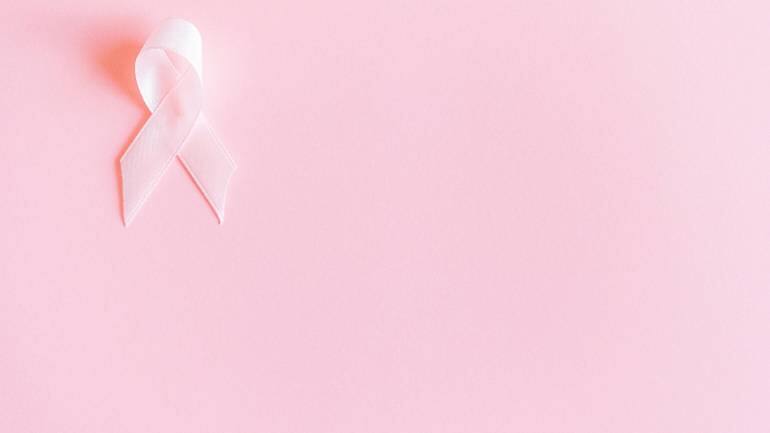Symptoms of breast cancer: Women should check their breasts once a month, ideally a few days after their period ends, by feeling for lumps, noticing changes in shape, or spotting unusual pain or discharge (Image: Pexels)
Both cervical and breast cancers are among the most common cancers in women. Cervical cancer is caused by long-term infection with the human papillomavirus (HPV), while breast cancer results from genetic, lifestyle or hormonal factors. And with a worrying rise in both the cancers, experts encourage caution and care.
Simple monthly self-checks are now one of the easiest ways for women to take back control of their health, spot warning signs early, and improve their chances of successful treatment.
Story continues below Advertisement
Many women admit they often overlook their own health needs, usually because they’re busy doing everything else. But ignoring regular self-checks could carry serious risks. Says Dr Ila Jha, Senior Consultant, Obstetrics & Gynaecology, Yatharth Super Speciality Hospital, Faridabad, “Breast and cervical cancers remain two of the most common cancers affecting women, yet they’re also among the most preventable if caught early. Sadly, many women delay screening out of fear or neglect, only to receive a diagnosis once the cancer has reached an advanced stage.”
Also read | Breast cancer: Understand your genetic risk, role of BRCA mutations and more
 How to do breast self-exam: Look out for unusual lumps, swelling, shape differences, or nipple discharge. Doing this after your period, when breasts are less tender, works best (Image: Pexels)
How to do breast self-exam: Look out for unusual lumps, swelling, shape differences, or nipple discharge. Doing this after your period, when breasts are less tender, works best (Image: Pexels)
One of the most effective tools in early detection, says Dr Jha, is the simple breast self-exam. “Women should check their breasts once a month, ideally a few days after their period ends, by feeling for lumps, noticing changes in shape, or spotting unusual pain or discharge,” advises Dr Jha.
She stresses that spotting any changes early could mean less aggressive treatment later. “The earlier breast cancer is detected, the better the chances of survival and recovery,” she adds.
Dr Jha suggests 10 effective tips for self-examination that every woman can do at home:
Monthly breast checks are quick and easy but can make a big difference. Dr Jha recommends doing this regularly to spot any changes. “Look out for unusual lumps, swelling, shape differences, or nipple discharge. Doing this after your period, when breasts are less tender, works best. It’s a small habit that can boost your awareness and confidence,” she says.
Story continues below Advertisement
Also read | Breast cancer: Easy and effective lifestyle changes that can lower your risk
Apart from lumps, changes to the skin around the breast or nipple can also signal problems. “Dimpling, redness, or puckering are signs that should never be ignored. These changes could mean something as simple as an infection, but it’s always safer to get them checked by your doctor right away,” Dr Jha informs.
While breast pain isn’t always linked to cancer, persistent or unusual pain shouldn’t be brushed off. Dr Jha explains, “If pain doesn’t go away after your period or feels different from your usual cycle, it’s worth discussing with your doctor.” Listening to your body can help detect issues early.
- Check for unusual bleeding
Cervical cancer often shows subtle signs, one of which is unexpected bleeding. “Any bleeding between periods, after intercourse, or after menopause, should be taken seriously. Many women ignore this symptom, but catching it early can prevent bigger problems later,” says Dr Jha.
Regular pelvic discomfort might seem like a normal part of life, but if it’s ongoing or feels different, it needs attention. “Pelvic pain that doesn’t improve or worsens over time can be linked to cervical issues. Keeping track of your symptoms helps in getting medical attention faster,” shares Dr Jha.
Also read | Breast cancer symptoms: Don't take lump or swelling in the breast, discharge lightly
- Monitor vaginal discharge
Changes in vaginal discharge can sometimes indicate infection, but they can also signal cervical cancer. “Look out for foul odour, unusual colour, or discharge that feels different from your usual pattern. Regular self-awareness can help you seek medical advice before it worsens,” she says.
- Schedule regular screenings
While self-checks are very important, they’re not a substitute for medical screening. “Routine Pap smears and HPV tests remain essential for cervical health. These tests can detect changes well before they become cancerous, offering an additional layer of protection,” reminds Dr Jha.
Unexplained tiredness or constant fatigue shouldn’t be ignored either. “Extreme fatigue that doesn’t improve with rest could signal an underlying health issue, including cancers. Pay attention to your body’s energy levels and talk to a doctor if you feel unusually drained for long periods,” notes Dr Jha.
- Listen to your gut instinct
Often, your body will try to tell you when something isn’t right. “Women know their bodies best. If you feel something is off, don’t dismiss it,” urges Dr Jha. Whether it’s a nagging worry or subtle change, trusting your instinct could lead to early help.
Lastly, encourage the women around you to practise self-checks too. “Talking about breast and cervical health openly can help break taboos and save lives,” says Dr Jha. Whether it’s your sister, friend, or colleague, sharing this message can empower others to take control of their health too.
Disclaimer: This article, including health and fitness advice, only provides generic information. Don’t treat it as a substitute for qualified medical opinion. Always consult a specialist for specific health diagnosis.




 How to do breast self-exam: Look out for unusual lumps, swelling, shape differences, or nipple discharge. Doing this after your period, when breasts are less tender, works best (Image: Pexels)
How to do breast self-exam: Look out for unusual lumps, swelling, shape differences, or nipple discharge. Doing this after your period, when breasts are less tender, works best (Image: Pexels)